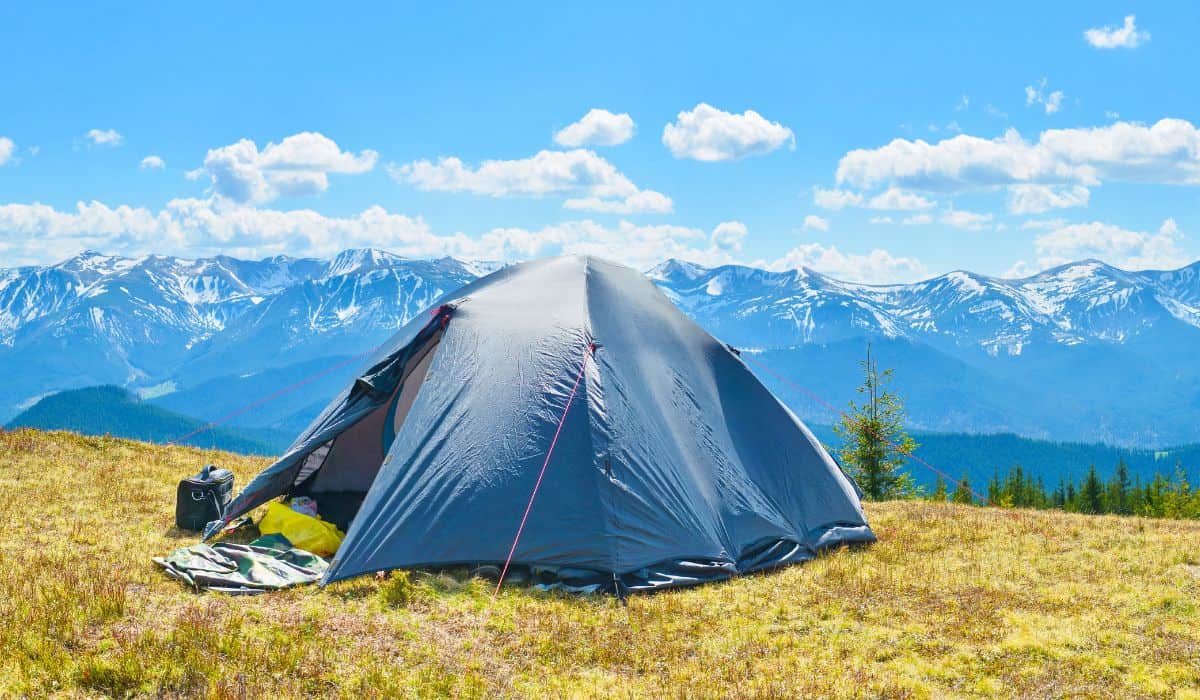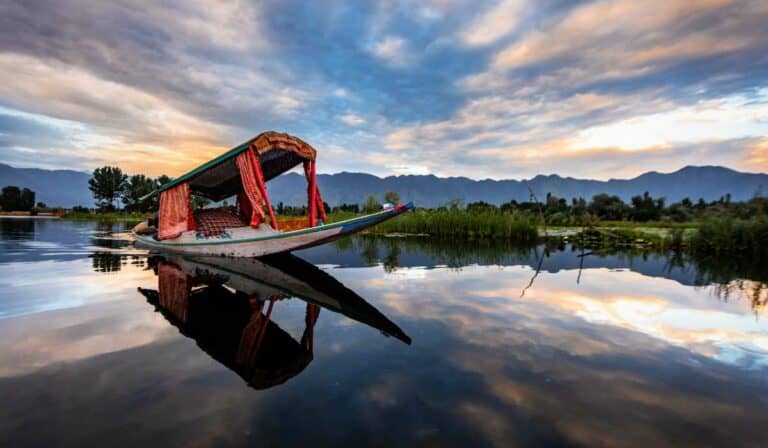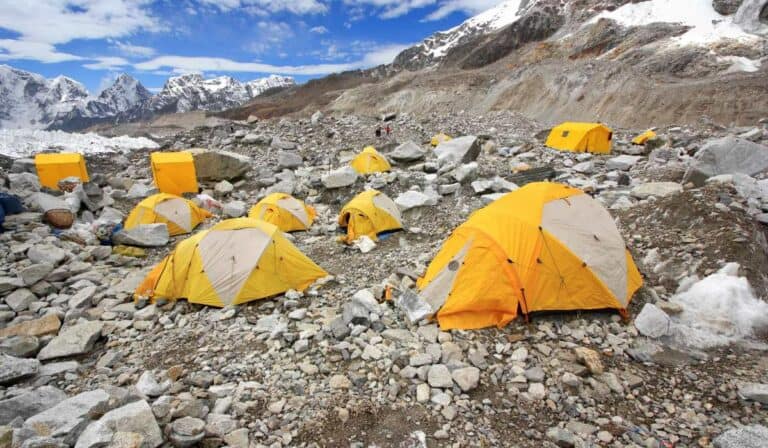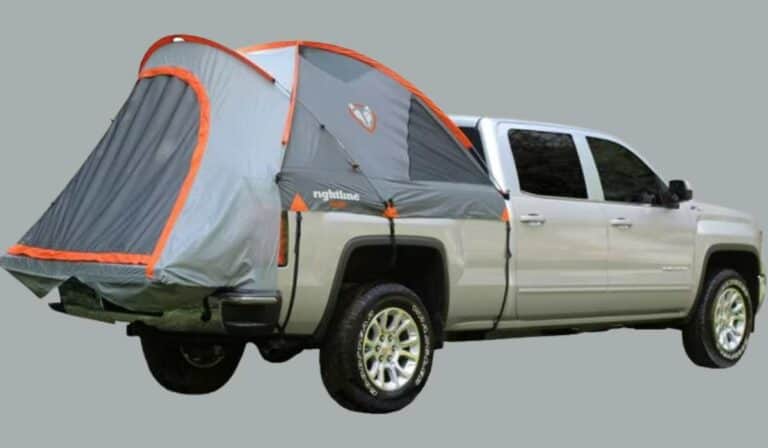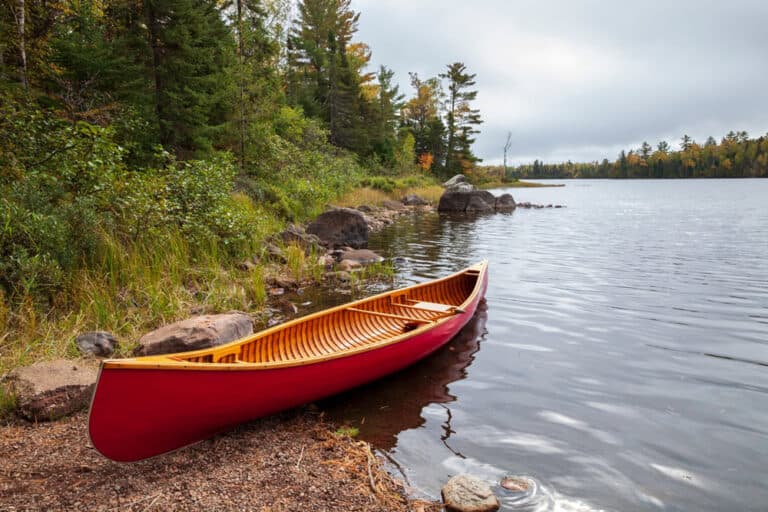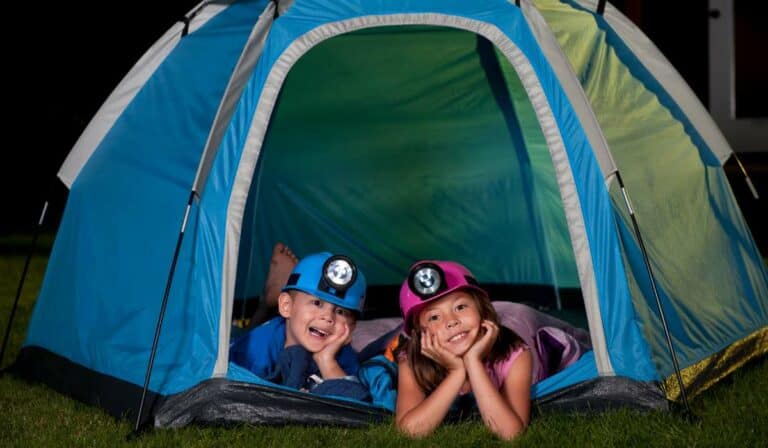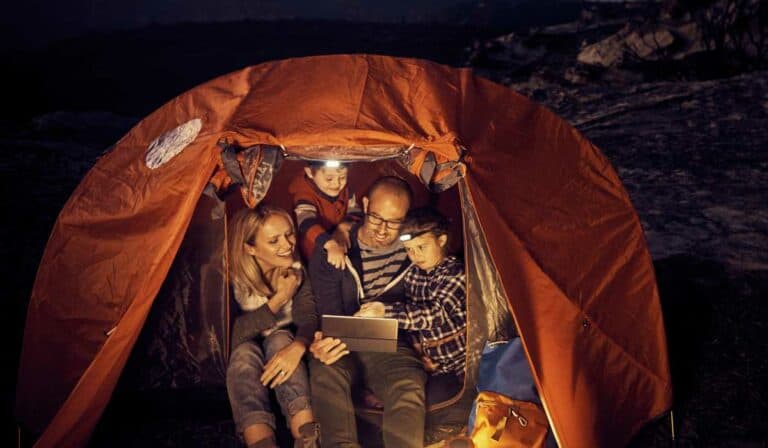Ultimate Guide to Tent Camping in Texas
Recent legislation banning camping in public areas may affect campers’ experiences, but there are still plenty of tent-camping opportunities within Texas state parks. Be informed about the state’s regulations and diverse natural offerings to ensure an enjoyable adventure.
Table of Contents
1. Texas Tent Camping Regulations
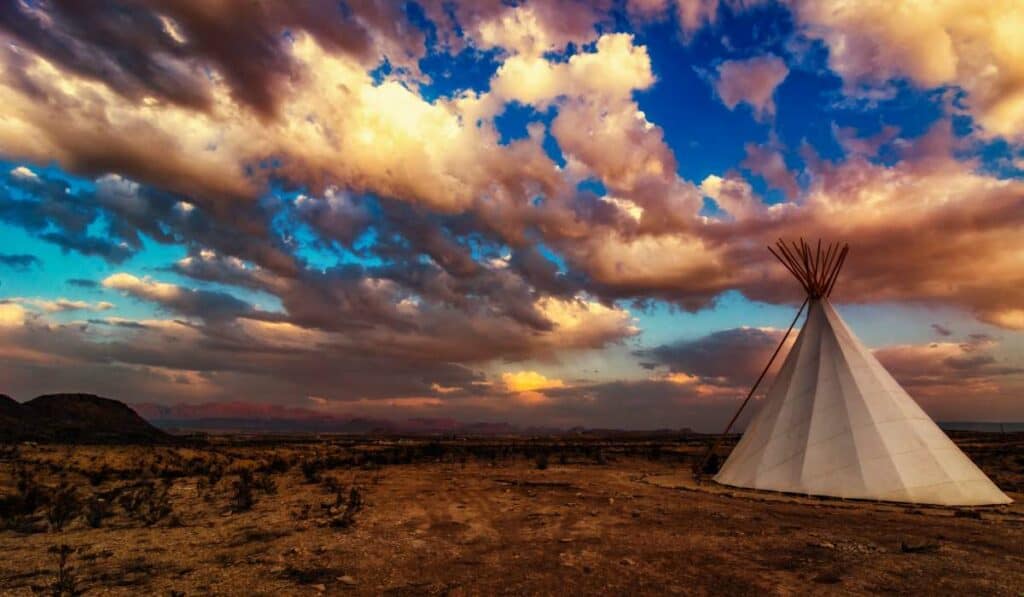
Understanding Recent Changes in Camping Laws
In Texas, some cities have implemented regulations banning camping on public land due to worries about safety and sanitation. However, these restrictions do not apply to designated campgrounds within state parks or other managed recreational areas. So while it is essential to be aware of local rules when planning your trip, rest assured that there are ample legal options for a memorable Texas camping experience.
Finding Legal Tent-Camping Locations
The Lone Star State boasts over 90 state parks and natural areas, many of which offer both developed campgrounds with amenities like picnic tables and boat ramps as well as primitive campsites for those seeking a more rugged experience. From the arid landscapes of West Texas at Big Bend Ranch State Park to the coastal beauty of Sea Rim State Park along the Gulf Coast, you’ll find a variety of settings perfect for pitching your tent.
- Big Bend Ranch State Park: Explore vast canyons and hike challenging trails amidst stunning desert scenery.
- Sea Rim State Park: Enjoy beachfront camping and birdwatching along the marshlands of East Texas.
- Guadalupe River State Park: Set up camp near the banks of the picturesque river in South Texas, perfect for fishing and kayaking.
To ensure a hassle-free experience, always check with park headquarters or local authorities about any specific regulations or permit requirements before embarking on your camping trip. Happy camping.
Click here to read about Discover the Best Tent Camping in Indiana
2. Exploring Big Bend Ranch State Park
As the largest state park in Texas, Big Bend Ranch offers primitive campsites alongside over 238 miles of hiking trails. Experience the raw grandeur of this Texas state park by engaging in a multitude of outdoor pursuits, suitable for all levels.
Navigating through the park’s extensive trail system
The vast network of trails at Big Bend Ranch caters to hikers, mountain bikers, and equestrians alike. Some popular routes include the Closed Canyon Trail, which takes you through a narrow slot canyon, and the scenic Hoodoos Trail. Be sure to stop by the park headquarters or visit their website for detailed maps and trail information before embarking on your adventure.
Unique features and attractions at Big Bend Ranch
- Fishing: The Rio Grande River runs along the southern border of this West Texas state park, providing excellent opportunities for anglers with valid fishing licenses. Don’t forget to pack your gear.
- Sauceda Bunkhouse: If you’re looking for something more than just tent camping, consider staying at the historic Sauceda Bunkhouse. This rustic accommodation offers a unique experience in the heart of Big Bend Ranch.
- Dark Skies: The park is designated as an International Dark Sky Park, making it one of the best places in Texas for stargazing. Don’t miss out on this opportunity to witness the beauty of our galaxy.
- Equestrian Activities: Bring your own horse or join a guided trail ride at Big Bend Stables, and explore the breathtaking landscapes from a different perspective.
No matter what type of outdoor enthusiast you are, Big Bend Ranch State Park has something to offer everyone. So pack up your tent and gear, and get ready for an unforgettable Texas camping trip.
3. Discovering Martin Dies Jr. State Park Campgrounds
If you’re seeking a versatile tent camping experience in Texas, look no further than Martin Dies Jr. State Park. Nestled between the Angelina and Neches Rivers, this park boasts over five campgrounds with both developed and primitive sites to suit every camper’s preference. The picturesque landscapes of East Texas provide an idyllic backdrop for your outdoor adventure.
Comparing different campground options within the park
- Henneke Fish Pond: A favorite among anglers, this campground offers 14 campsites with water and electricity hookups near a well-stocked fishing pond.
- Beechwood: With its proximity to hiking trails and picnic tables, Beechwood is perfect for families or groups looking for more amenities during their stay.
- Cypress Slough Primitive Camping Area: For those who prefer a more rustic experience, Cypress Slough provides walk-in primitive campsites surrounded by lush vegetation along the riverbank.
- Pecan Point Group Camping Area: Ideal for large gatherings or events, Pecan Point features group campsites complete with picnic tables and fire rings.
Activities available at Martin Dies Jr. State Park
In addition to its diverse range of campgrounds, Martin Dies Jr. State Park also offers various activities that cater to all interests. Enjoy canoeing or kayaking down the scenic rivers while keeping an eye out for local wildlife like white-tailed deer or bald eagles soaring overhead. If you prefer land-based adventures, explore miles of hiking trails that wind through the park’s dense forests and wetlands. Don’t forget to bring your fishing license, as the park is home to several well-stocked ponds teeming with catfish, bass, and sunfish.
No matter which campground you choose or the activities you partake in, Martin Dies Jr. State Park promises a memorable camping trip amidst the natural beauty of East Texas. With its primitive camping options, you can experience the thrill of camping in the wild, or opt for the developed campgrounds if you prefer a more comfortable stay. If you’re planning on primitive camping, make sure to obtain a camping permit from the park headquarters.
For those looking to explore other camping options in Texas, the Lone Star State has plenty to offer. Head to the Gulf Coast and pitch your tent at Sea Rim State Park, where you can camp on the beach and enjoy the sound of the waves crashing against the shore. Or, venture out to West Texas and camp at Big Bend Ranch State Park, where you can stay at the Sauceda bunkhouse or primitive campsites and explore the rugged terrain of the Chihuahuan Desert. If you’re looking for a unique camping experience, head to Padre Island National Seashore and camp on the beach, where you can watch sea turtles nesting and hatchlings making their way to the ocean.
Whether you’re a seasoned camper or a first-timer, Texas parks offer a variety of camping options to suit every preference. So pack your gear, grab your friends and family, and embark on an unforgettable camping adventure in the Lone Star State.
Click here to read about Easy Up Tent Camping: A Comprehensive Guide
4. Preparing for Weather Conditions & Wildlife Encounters
Tent camping in the Lone Star State provides a chance to commune with nature, but it also entails its own set of obstacles. To ensure a safe and enjoyable experience, be prepared for various weather conditions and potential encounters with local wildlife.
Essential Gear Recommendations for Various Climates
The Texas landscape boasts a variety of weather conditions, ranging from the sultry Gulf Coast to the dry West Texas desert. When packing your gear, consider the specific region you’ll be visiting and plan accordingly:
- Gulf Coast: Lightweight clothing, rain gear, sunscreen, insect repellent
- West Texas: Sun protection (hat/sunglasses), layers for temperature fluctuations at night
- East Texas Piney Woods: Waterproof boots/shoes due to wet terrain; tick prevention measures like long pants tucked into socks or permethrin-treated clothing
- Hill Country/Central Plains: Sturdy hiking shoes/boots; extra water supplies during hot summer months
Tips on Coexisting Safely with Wildlife During Your Trip
Your camping trip in Texas may bring you face-to-face with some of the state’s fascinating native species. Follow these guidelines to minimize risk while respecting their natural habitats:
- Avoid feeding animals or leaving food unattended – this can attract unwanted visitors such as raccoons or bears.
- Keep a safe distance from all wildlife, especially larger mammals like bison or deer.
- Identify and stay away from venomous snakes native to Texas, such as rattlesnakes and copperheads, for a safe camping experience. In case of snakebite, seek immediate medical attention.
By taking these precautions and staying informed about local conditions, you can make the most of your tent camping experience in Texas’ diverse landscapes.
5. Making Reservations & Checking Local Regulations

Booking your camping trip in advance and familiarizing yourself with local regulations are key steps to ensure a great experience at your favorite campground. Ensuring an optimal camping experience necessitates prior preparation, such as booking and familiarizing oneself with local laws.
How far ahead should you book?
The popularity of Padre Island National Seashore, Pedernales River National Park, and other Texas parks means that campgrounds can fill up quickly, especially during peak seasons. To guarantee your preferred spot, consider booking at least three months in advance for developed campgrounds and one month for primitive campsites. Keep in mind that some state parks may require a camping permit or reservation even for backcountry or dispersed camping areas.
Important rules that vary between parks
- Campfires: Some parks allow open fires while others only permit contained fire rings or grills. Always check park-specific guidelines regarding fire safety and adhere to any burn bans in effect.
- Fishing License: If you plan on fishing during your stay, note that most state parks require a valid Texas fishing license with appropriate endorsements. You can purchase these online through the Texas Parks & Wildlife Department website.
- Pets: While many Texas state park campgrounds are pet-friendly, there may be restrictions on where pets are allowed within the park boundaries (e.g., trails, beaches). Be sure to review the park’s pet policy before bringing your furry friend along.
- Boat Ramp Access: If you plan on boating during your camping trip, verify that the park has a boat ramp and whether there are any fees or restrictions associated with its use.
In addition to making reservations and checking local regulations, don’t forget to pack essentials like picnic tables for outdoor dining, proper clothing for varying weather conditions in West Texas or East Texas regions, and necessary equipment for exploring hiking trails. With careful planning and preparation, you’ll be well on your way to enjoying an unforgettable Texas camping adventure.
Click here to read about The Best Tents for Beach Camping: Top Picks & Tips
6. Unforgettable Attractions for Tent Campers in Texas
Tent camping in Lone Star State offers a wealth of unique experiences that you won’t find anywhere else. From exploring ancient hunter-gatherer murals at Hill Country State Natural Area to gazing up at the night sky at Padre Island National Seashore, there’s something for everyone to enjoy.
Visiting the World’s Largest Spring-Fed Swimming Hole
Balmorhea State Park is home to San Solomon Springs, which feeds into an enormous pool measuring 1.75 acres and reaching depths of up to 25 feet. The crystal-clear waters of San Solomon Springs draw in swimmers, snorkelers, and divers alike who are eager to discover the abundance of aquatic life living within it, including catfish, turtles, and rare pupfish species.
Hiking through Palo Duro Canyon and Guadalupe Mountains National Park
- Palo Duro Canyon: Known as the “Grand Canyon of Texas,” this stunning geological formation boasts over 30 miles of hiking trails that wind through vibrant red rock formations and lush greenery. The park also offers a variety of recreational activities like horseback riding or mountain biking on designated trails. Learn more about Palo Duro Canyon State Park here.
- Guadalupe Mountains National Park: As the highest point in Texas, Guadalupe Peak offers a challenging yet rewarding hike with breathtaking views of West Texas and beyond. The park also features diverse ecosystems ranging from desert landscapes to lush forests, providing ample opportunities for wildlife sightings and nature photography. Plan your visit to Guadalupe Mountains National Park today.
From the vast desert to lush forests, Texas has a plethora of natural wonders that can be enjoyed through camping trips.
FAQs about Tent Camping in Texas
Can you pitch a tent anywhere in Texas?
No, you cannot pitch a tent anywhere in Texas. Tent camping is allowed only at designated campgrounds within state parks, national forests, and other public lands. Always check local regulations and obtain necessary permits before setting up your tent.
Why is a tent important in camping?
A tent provides shelter from the elements while camping outdoors. It offers protection against rain, wind, sun exposure, insects, and wildlife encounters. A good quality tent also ensures comfort during sleep by maintaining proper ventilation and temperature inside.
What is the new camping law in Texas?
The new camping law in Texas (House Bill 1925) prohibits public camping without permission on both private property and certain public areas such as sidewalks or parks within city limits. Violators may face fines or misdemeanor charges. This does not affect legal campgrounds found within state parks or other authorized locations.
What do I need to know about camping in a tent?
To have an enjoyable experience when camping with a tent, consider factors like choosing an appropriate location based on weather conditions; selecting the right size of the tents for occupants; packing essential gear including sleeping bags, cooking equipment & first aid kit; following Leave No Trace principles; preparing for potential wildlife encounters & respecting park rules/regulations.
Conclusion
In conclusion, Texas offers a plethora of legal tent camping options with unique features and attractions. It is essential to be mindful of new camping regulations, get ready for varying weather and possible wildlife sightings, book ahead of time, and examine local laws before starting your outdoor journey. From exploring Big Bend National Park to discovering Martin Dies Jr. State Park Campgrounds, there are endless opportunities for unforgettable experiences while Tent camping in Texas.

